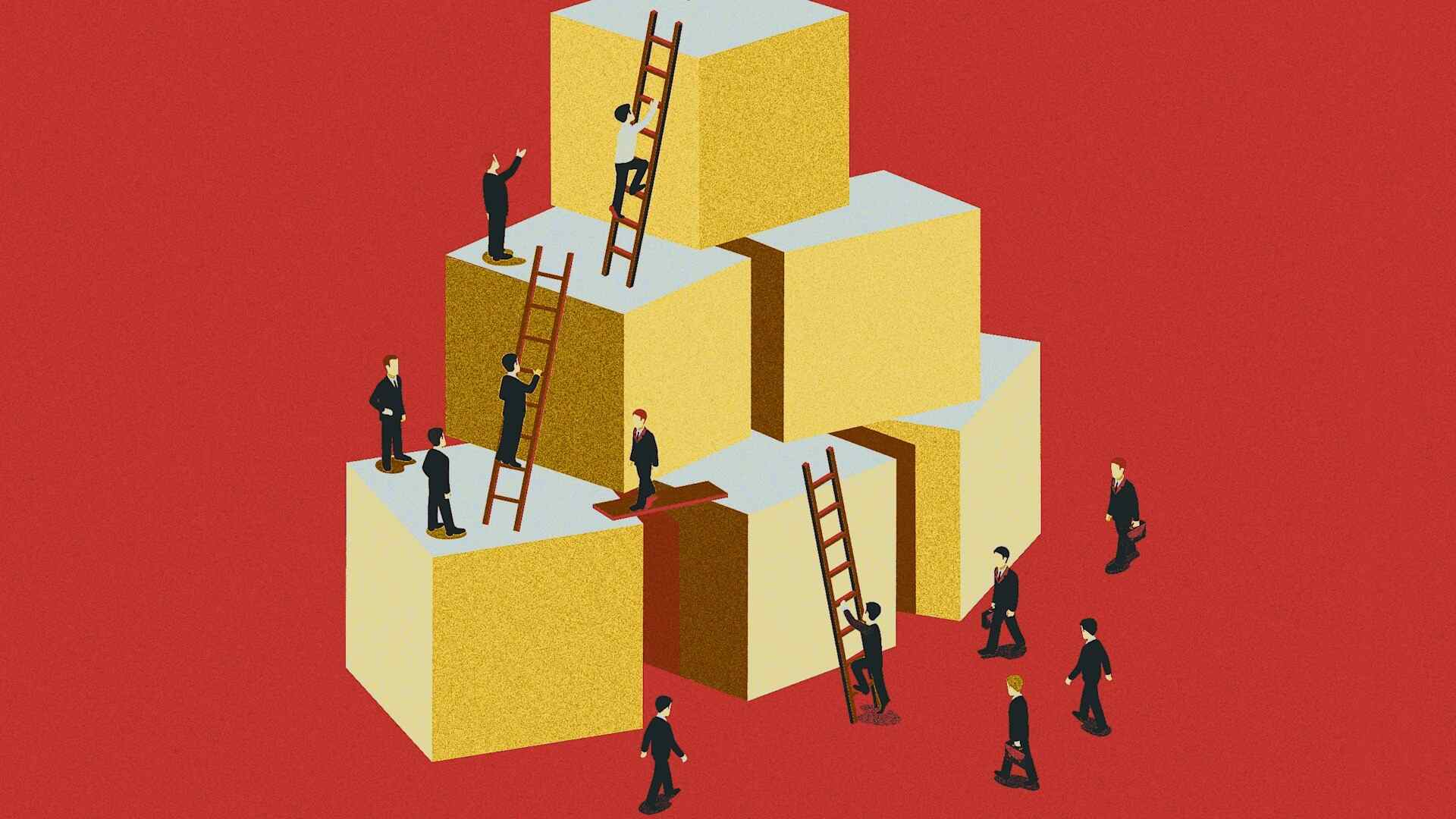- | 9:00 am
Do you have ‘career dysmorphia’?
If you constantly compare your success to others,’ you might.

From the constant LinkedIn updates of ex-colleagues climbing the corporate ladder, to friends hitting career milestones or landing their dream roles . . . it’s easier than ever to feel professionally “behind.”
There’s a name for that feeling you can’t shake: career dysmorphia.
You’ve probably heard of body dysmorphia (an actual medical diagnosis) or money dysmorphia (not a medical diagnosis). Career dysmorphia is an anecdotal term that follows a similar line of thinking: a disconnect between someone’s professional achievements and their perception of their worth.
Some classic signs: You hold back from going for promotions because you feel unprepared, even when others insist you’re more than capable. You keep collecting certifications and degrees—not out of ambition, but from a lingering fear of never being “enough.” Or maybe you sit through meetings with ideas in your head, but hesitate to speak up.
Also called “job dysmorphia,” the topic has gained traction in recent months: on LinkedIn posts, in YouTube videos, in articles on lifestyle sites, news sites, and youth publications.
Similar to imposter syndrome (minus the fear of being exposed), career dysmorphia describes not just a singular moment of self-doubt—but an outlook that defines your view of your entire career. It’s unsurprising. We live in an era where success is curated and easily shareable via LinkedIn updates (“I’m excited to announce . . .”). Many feel inadequate.
According to a 2024 Gallup survey, employees across America are feeling increasingly detached from their jobs. Others are impacted by toxic bosses or workplaces that don’t recognize and reward their contributions, which could potentially fuel job dysmorphia. Only 30% of U.S employees feel that someone at work encourages their development, down from 36% in March 2020, another 2025 Gallup survey found.
Career dysmorphia born out of workplace discrimination adds another layer of complexity. The old adage “you have to work twice as hard to get just as far” holds true for many women, people from low-income backgrounds, people of color, and many other marginalized communities in the workplace.
Whether it’s caused by an innate feeling of inadequacy or by external pressures and societal inequalities, career dysmorphia is a cycle that can hold workers back from reaching their true potential. It’s always worthwhile to employ the same techniques as you would with general comparison anxiety: set social media boundaries, naming and processing your feelings, or spending time with people who admire you and build you up.
Overcoming confidence issues—in the workplace or otherwise—always takes time. (If nothing else, you can try laughing at “LinkedIn vs. Reality” posts like this, this and this.)







































